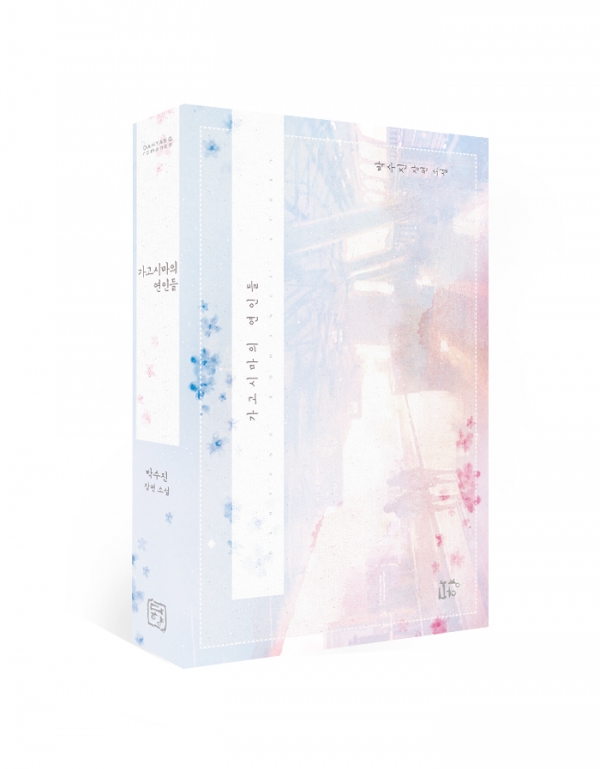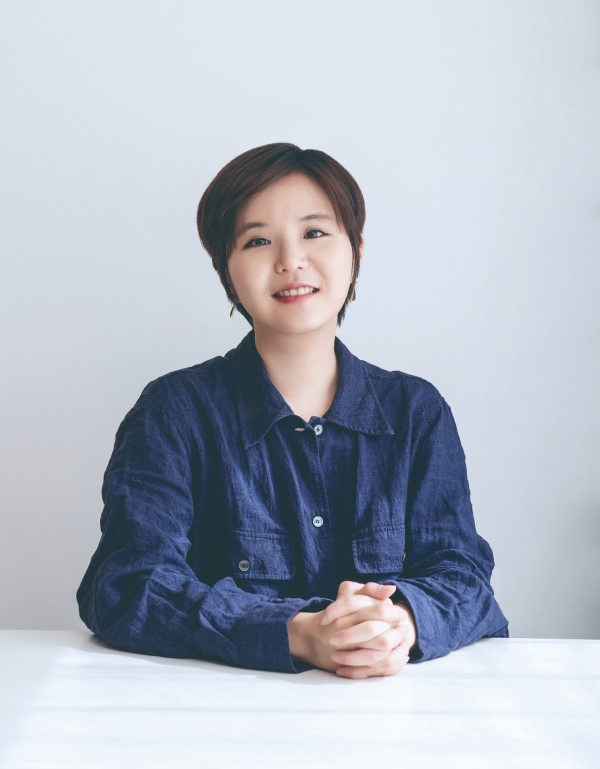The Korea Creative Content Agency (KOCCA) announced in December 2020 that the market size of the web novel industry had reached 50 billion won, showing a significant growth as the industry in 2013 was merely one billion won. The latest market size is also significant in that it surpassed the paperback book industry which is measured to be around 30 billion won. Web novels are fictions that are published online and are usually provided in pay-to-read formats. Platforms such as Kakao and Naver have both the largest variation of web novels and customers in Korea.
RIDIBooks, the sixth biggest Korean web novel platform, found that 44 percent of their users were in their teens and mostly twenties, otherwise known to be grouped together as generation MZ.
The platform gained its strength not only through its user-friendly viewer system but its marketing strategies. In order to satisfy the needs of generation MZ, the platform created RIDI Fine goods, a product related to the promoted web novel. RIDIBooks was able to feel the power of generation MZ in the web novel after launching an event.
In August 2020, RIDIBooks promoted an event for its representative fantasy web novel. The story revolves around a protagonist named Han Yoo-jin as he turns back time after his brother sacrificed himself to save the protagonist. Han tries to fight back that fated apocalypse and overcome his emotional hardships and guilt aroused by his brother’s death. The novel has recorded more than 21 million views.
After RIDIBooks announced they would give out profile cards of web novel characters for their purchase of the novel, the platform saw a 900 percent increase in its paid customer numbers. The platform was more surprised to find out that 51 percent of those newly signed-up users were born in the 1990s and 2000s.
A writer, an expert, and a reader explain why web novels are such a hit
Park Su-jin, also known as Shumai, a web novel writer with the experience of approximately 13 years of writing and even has some of her pieces published in paper books as well because of its popularity, shared her point of view on the generation MZ’s obsession with the web novels.

Park believed generation MZ’s enthusiasm for web novels has to do with the aspect of the platform in which it allows the readers to build their own library on their phone, rather than some physical spaces.
“Readers of the web novels can form their own very secretive, personal library on their phone by downloading their favorite novels,” Park said. “If it were an actual library, like the one at their home, some would probably fill their library with fancy, pretentious books, considering the visitors of the house witnessing the library. But, for an online library with your web novels, you can fill it with any books of your taste.”
Park also added that another reason that generation MZ became leading consumers of Korean web novel industry might be related to the form of cultural consumption that has been generalized amongst the generation, which is to briefly enjoy the edited short version of contents.
“The generation MZ tend to read about one episode of the web novel on the bus or subway and, either go on to another platform of media and enjoy different contents or move on to an online community where the topics of their interests are coming up real time,” Park said. “Because the generation is interested in various fields and has a tendency to quickly scan a wealth of information online, as for the literature, they are more familiar with the web novels.”
When asked about what she cares the most when creating the pieces, Park revealed that she spends most of her time thinking about whether her story and the way she portrays the story can form a bond of sympathy with the contemporary readers.
“It is easy to get the criticizing comments with the old, cliché storytelling,” Park said. “Especially, in the world of web novels, you will hardly be loved with the devoted, noble female character that readers cannot relate themselves to.”
Park concluded the interview, saying that the authors of the web novels are trying their best to form a bond of sympathy with the readers.
“Some think that the web novels are nothing but only a light, provocative storyline,” Park said. “However, pieces with such storyline go relatively unnoticed for most of the time. The web novel writers, including myself, are toiling to vividly portray the story of ‘us’ living this day and age.”
Moon A-rum is a professor at the School of Manhwa Contents of Chungkang College of Cultural Industries and author of popular pieces on Lezhin Comics and Comico. She shared her insights on the Korean web novel industry, both as a scholar studying various modern digital contents and a writer of award-winning web novels.

Moon believed the leading consumers in Korean web novels lie in the generation MZ is because of the common sentiment and media environment that the generation shares.
“As for the web novels, the high accessibility and the serially publishing system satisfies the ‘cider narrative,’ a narrative in which the author quickly points out the target who the protagonist takes advantage on, and arranges the episodes where protagonist takes their vengeance on, that the generation MZ demands,” Moon said. “The familiar trend of ‘cider narrative’ forms a system where the purchase rate can severely go down unless the author attracts the readers from the very beginning of the novel.”
Moon explained what makes web novels different from pure literature, apart from how web novels are commonly thought of as amongst the public. Because of the combination of the terms “web” and “novel”, individuals tend to think that the media environment of printed books and electronic books are what makes the web novels different from previous pure literature.
“If I were to point out the difference between writing pure literature and web novels from the author’s point of view, the biggest difference would be that the story is serially published on a regular basis,” Moon said. “Also, as for web novels, since the readers purchase the piece episode by episode, authors are able to check the readers’ reaction toward the pieces right away through the purchase rate.”
Furthermore, Moon stated that when working on her romance-themed web novel, she puts most of her efforts and time into agonizing over how love can become violent in some ways. The love between the characters can appear pretty violent when the characters are malformed in an attempt to create a rising action of the story.
“I often ask myself despite the popularity that such a violent aspect can bring, whether I would be able to forgive the character,” Moon said. “Recently, I have been trying my best to replace the violence with other alternatives of expressing love in romance-themed novels. One of the things that matters a lot in web novels is the issue of ethics.”
Kim Ye-eun, a senior in Chung Ang University, shared her experience when she first read a web novel. Kim suggested the biggest advantages that web novels have are its adequate length and price.
When Kim was recommended a web novel for the first time, she thought it would be similar to e-books, where contents in paperbacks are simply typed in electronic files. Kim, however, found out that web novel authors usually upload one episode per day, and each episode usually takes five to seven minutes to read.
“Web novels are much less burdensome to read than actual paperbacks or their e-books,” Kim said. “The texts are adequately fitted into your smartphones and each episode of a novel costs only a 100 won. I believe these are the features that caught the young generations’ interest.”
Lee Eun-ji, a senior in Scranton College, is an avid reader of Korean web novels. Mainly interested in romance fantasy genres, Lee thought the bond of sympathy among readers, especially women, created a boom in romance fantasy web novels.
Lee believed the genre heals the readers who suffered greatly from the reality where women are discriminated against and provides vicarious satisfaction by allowing women to project their desires to be respected and loved into fictional novels.
According to Lee, the recent trend in romance fantasy web novels includes stories in which an innocent female protagonist is abused by her family. She usually suffers from sexual discrimination, low self-esteem, and groundless hatred by people around her. Lee believed this story creates empathy in female readers.
The protagonist usually dies early in the story and opens her eyes in another person’s body. With many vicissitudes in the story, she ultimately achieves revenge, a high social status, marriage with a successful husband, and love from a new family. These endings render delightfulness and satisfaction to readers who were identifying themselves with the protagonist.
Lee further explained how fantasy web novels are different from romance fantasy genres.
“Fantasy web novels usually do not include the protagonist’s meeting an admirable spouse or reincarnating in an amiable family,” Lee said. “But instead, they usually become an important person located in the center of the story from their initial insignificant and impoverished life. There may be a difference between fantasy and romance fantasy web novels regarding the main plot. But I think the sense of empathy created within the readers is what makes web novels, no matter their genres, so popular and immersive.”

